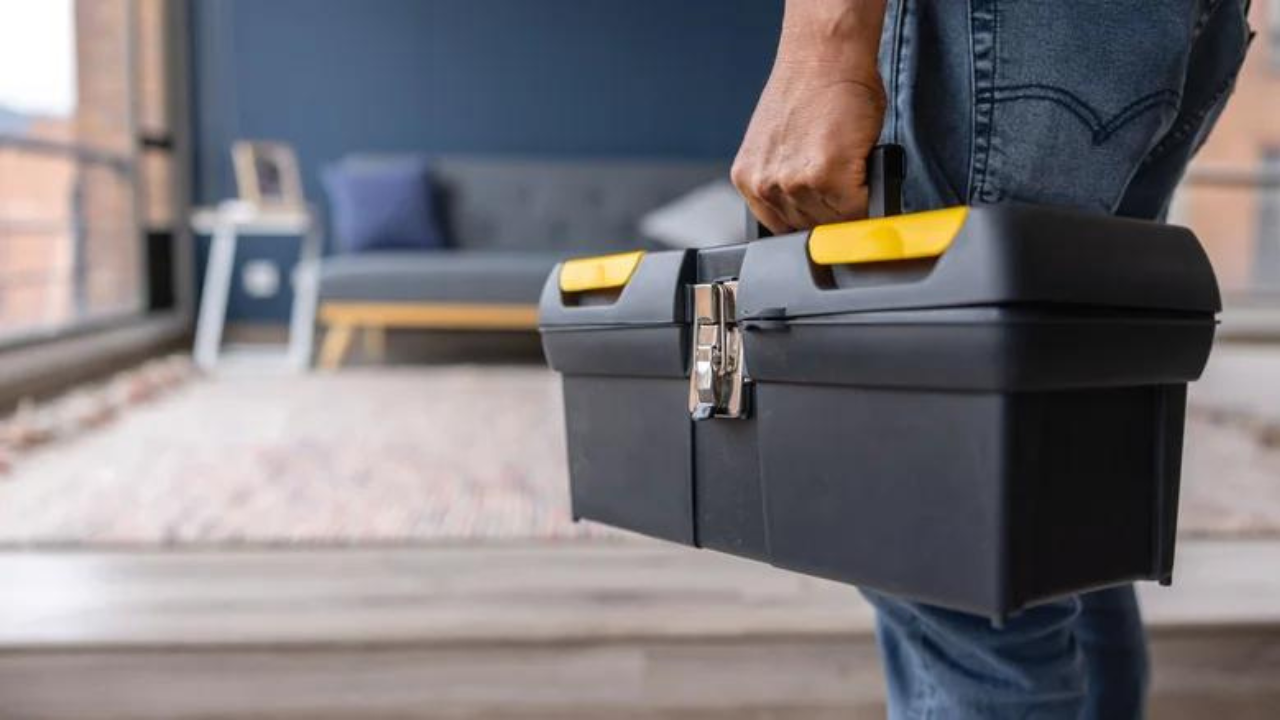10 essentials every homeowner should have in their toolbox
Got a few DIY projects coming up? Here are the main tools you should have to hand


Get all the latest news, reviews, deals and buying guides on gorgeous tech, home and active products from the T3 experts
You are now subscribed
Your newsletter sign-up was successful
Having an extensive and complete toolbox is the key to any home renovator’s heart. Yes, it might mean that those days of dancing until the sun comes up are over (or not, we won’t judge!) but it doesn’t mean that your love for tools has to be any less exciting. On the other hand, this could be your first DIY rodeo and you’re looking for a solid place to start. Well, you’re on the right track. We’ve already rounded up our essential garden tools for every gardener, now we’re here for the homeowners.
When you commence on a home renovation, each project becomes more and more ambitious. Accumulating the right tools is important so we’ve compiled a list of the essentials that won’t let you down. It’s guaranteed that each tool below will earn its forever spot in your dearly loved toolbox.
1. Manual screwdriver
Manual screwdrivers, such as a phillips or flathead, are great for light-duty jobs such as hanging items or assembling furniture. If you need to establish pilot holes before driving larger screws into wood, then it’s also a good idea to use a manual screwdriver.
Safety tip: Keep screwdrivers in good condition. A broken handle or bent blade may cause a screwdriver to slip and result in a hand injury.
2. Electric screwdriver
Wondering whether you need an electric screwdriver as well as a manual? The answer is yes. They are much better for larger jobs, such as construction work or high-volume production tasks. Check out our 2023 guide for the best one to buy!
Safety tips: It’s important to register a new electric screwdriver with the manufacturer so that you can be contacted if a safety notice or recall is required. It also makes it easier for you to return a faulty product or order a repair.
3. Allen key
Also known as a hex key, allen keys are very useful for assembling furniture. Whilst they are usually supplied in assembly packs, it’s always important to have one as they can easily go missing due to their small size.
Get all the latest news, reviews, deals and buying guides on gorgeous tech, home and active products from the T3 experts
Safety tip: If the angle of rotation exceeds 30°, there exists a danger that the screw or the wrench will break. Appropriate preventive measures should be taken such as wearing gloves or wrapping a cloth around the point where it is likely to break.
4. Spirit level
Spirit levels are a much needed necessity for putting up shelves or hanging any mirrors or frames. Using a level ensures that things are straight, with no wonkiness in sight! They are also extremely useful for sketching straight lines on surfaces to use as a guide for any screws or nails.
Safety tip: Inappropriate use can cause the fluid to leak, making your level off-centre and therefore unable to work properly. You also don’t want the liquid to end up anywhere it shouldn’t!
5. Tape measure
Tape measures are a big ‘must have’ for any toolbox. They are useful in many situations, such as measuring for a new patio or checking whether or not there is space for a new piece of furniture.
Safety tip: Tape measures can cause injuries when used improperly. Handling it with care allows you to get the measurements you need without a trip to A&E!
6. Claw hammer
The most obvious use for a claw hammer is hitting nails into things, whether that’s a wall or a plank of wood. However, the clawed end of the hammer is also perfect for pulling these nails back out again. Make sure to avoid ones with a wooden handle (they tend to break after a while) and choose one with a long-lasting synthetic handle instead.
Safety tip: Injuries are a common occurrence when using hammers, so it’s important to always wear safety glasses to protect your eyes from flying debris.
7. Pliers
Pliers are particularly useful for providing extra grip when tightening or loosening nuts on furniture. Pliers can also be used for cutting and bending wires, gripping small objects and reaching awkward places.
Safety tip: Never expose pliers of any kind to excessive levels of heat. It can change the properties of the tool and render it useless.
8. Utility knife
Another essential that homeowners should have is a basic utility knife with a retractable blade. It’s a great hand tool for small jobs around the garden, such as cutting rubber or even pruning.
Safety tip: Duller blades pose an even greater risk of cutting yourself due to having to use increased force. Make sure to change blades when dulling occurs!
9. Hacksaw
Hacksaws are specifically designed for cutting through materials such as plastic, steel, and other metals, making them a very useful tool to have. They supply firm and precise cutting power, ideal for a wide range of projects and applications.
Safety tip: To prevent damage to (or from) your hacksaw blade, cover it with pipe insulation cut to length when you have it in your toolbox.
10. Torch
A torch with strong light is an often overlooked essential for a tool kit. They’re actually really important for when you’re working in darker areas of your home, such as the attic, cupboards or a cellar. They’re also very handy to have if an unexpected power cut makes an appearance! Have a look at our 2023 guide for best torches and best head torches.
Safety tip: If you feel your torch overheating, turn it off and position it in a cool place. You most likely have overused its amperage so leave it alone for a few hours and come back to it when it has cooled down completely.

Lizzie is T3's Home Living Staff Writer, covering the latest in smart home, lifestyle and beauty tech. From skincare gadgets to vacuum cleaners, she's your go-to for trends and top recommendations.
When not writing, Lizzie enjoys mooching around Bath, spending time with loved ones, or testing her review units – often during an enthusiastic cleaning spree!